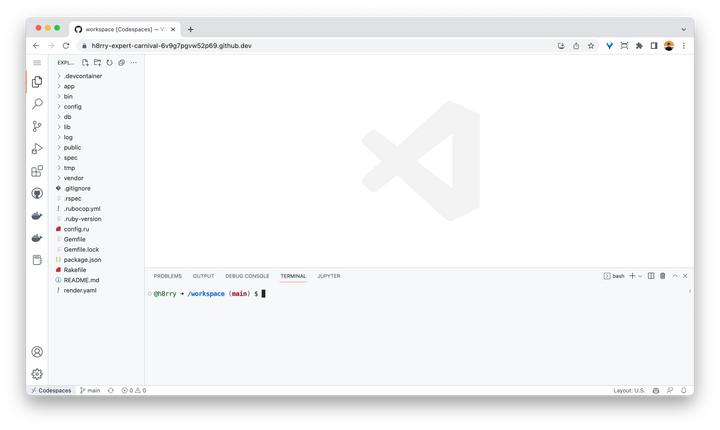How long does it take to learn HTML & CSS
Introduction
In the world of web development, HTML and CSS are two of the most essential skills to learn. They are the building blocks of every website, and mastering them is a must for anyone who wants to start a career in web development or simply build their own website. In this blog post, we will explore how long it takes to learn HTML and CSS, as well as provide some key insights and tips to help you on your learning journey.
What are HTML and CSS?
Before diving into the time it takes to learn HTML and CSS, let's first clarify what these two languages are and their functions in web development.
HTML: The Structure of the Web
HTML, or HyperText Markup Language, is a markup language used to create the structure of a web page. Think of HTML as the skeleton of a website, providing the foundation upon which everything else is built. HTML uses a system of tags to organize and define different elements on a web page, such as headings, paragraphs, images, and links. These tags are enclosed in angle brackets, like <p> for paragraphs and <img> for images.
CSS: Styling the Web
CSS, or Cascading Style Sheets, is a stylesheet language used to control the appearance of a web page. While HTML provides the structure, CSS adds the design elements, such as colors, fonts, and layout. CSS allows you to style HTML elements by assigning specific properties to them, like setting the font size of a paragraph or the background color of a page. This separation of structure and style makes it easier to maintain and update web pages, as changes can be made to the CSS without affecting the underlying HTML.
Factors that Affect the Time it Takes to Learn HTML and CSS
Now that we have a basic understanding of what HTML and CSS are and their roles in web development, let's look at some factors that can affect how long it takes to learn these languages.
Your Background and Experience
Your prior experience with programming or web development can significantly impact the time it takes to learn HTML and CSS. If you already have knowledge of programming concepts or experience with other markup languages, you may be able to pick up HTML and CSS more quickly. Conversely, if you are new to coding and web development, it may take a bit longer to grasp the concepts and syntax of these languages.
The Amount of Time You Can Dedicate to Learning
The time you can dedicate to learning HTML and CSS will also play a major role in how long it takes to master these languages. If you can commit several hours a day to learning and practice, you will progress more quickly than if you can only spare an hour or two each week.
Your Learning Style and Resources
Everyone learns differently, and your preferred learning style may affect how long it takes to become proficient in HTML and CSS. Some people may prefer online tutorials and video lessons, while others may find books or in-person classes more effective. The quality and variety of learning resources available to you can also impact your learning speed.
A Rough Timeline for Learning HTML and CSS
While it's difficult to provide an exact timeframe for learning HTML and CSS, we can offer a rough guideline based on the average time it takes for beginners to become proficient in these languages. Keep in mind that individual experiences will vary, and your timeline may be shorter or longer depending on the factors discussed above.
2 Weeks: Basic Understanding
After roughly two weeks of dedicated learning and practice, most beginners can achieve a basic understanding of HTML and CSS. This means you should be able to create simple web pages using basic HTML tags and apply some basic styling with CSS. At this point, you may not be able to build complex or responsive websites, but you'll have a solid foundation to build upon.
1-3 Months: Intermediate Skills
After one to three months of consistent learning and practice, you should have a more in-depth understanding of HTML and CSS, and be able to build more complex websites with multiple pages, navigation, and more advanced styling. You might also start exploring responsive web design and learn how to make your websites look good on different devices and screen sizes.
3-6 Months: Advanced Skills
With three to six months of continued learning and practice, you can expect to have advanced skills in HTML and CSS. At this stage, you should be able to build complex, responsive websites from scratch and have a solid understanding of best practices for web development. You may also begin exploring other aspects of web development, such as JavaScript, which can add interactivity to your websites.
Tips for Learning HTML and CSS Effectively
Now that we have a rough idea of how long it takes to learn HTML and CSS, let's explore some tips to help you learn more effectively and efficiently.
Start with the Basics
As with any new skill, it's essential to start with the basics and build a strong foundation. Focus on learning the core HTML tags and CSS properties before diving into more advanced concepts. This will give you a better understanding of how everything fits together and make it easier to progress to more complex topics.
Practice, Practice, Practice
The more you practice, the more comfortable you will become with HTML and CSS. Try to build small projects or recreate existing websites to reinforce your learning and gain experience working with different elements and styles.
Seek Out Quality Learning Resources
As mentioned earlier, the quality and variety of learning resources can greatly impact your learning speed. Be sure to seek out reputable and up-to-date resources, such as online tutorials, books, or in-person classes. Take advantage of free resources like Mozilla Developer Network (MDN) and W3Schools, which offer comprehensive guides, examples, and references for HTML and CSS.
Break Down Complex Concepts
If you're struggling with a particular concept or technique, try breaking it down into smaller, more manageable parts. This can make it easier to understand and apply what you're learning, and can also help you identify any gaps in your knowledge.
Don't Be Afraid to Ask for Help
If you're stuck or unsure of something, don't be afraid to ask for help. Reach out to a mentor, a friend, or an online community, such as Stack Overflow or web development forums. There are many experienced developers out there who are more than willing to offer advice and support.
Conclusion
While everyone's learning journey will be different, the average time it takes to learn HTML and CSS ranges from a few weeks to several months. The key to success is to be patient, persistent, and dedicated to learning and practicing these languages. With the right resources and mindset, you'll be well on your way to building beautiful, functional websites in no time.




